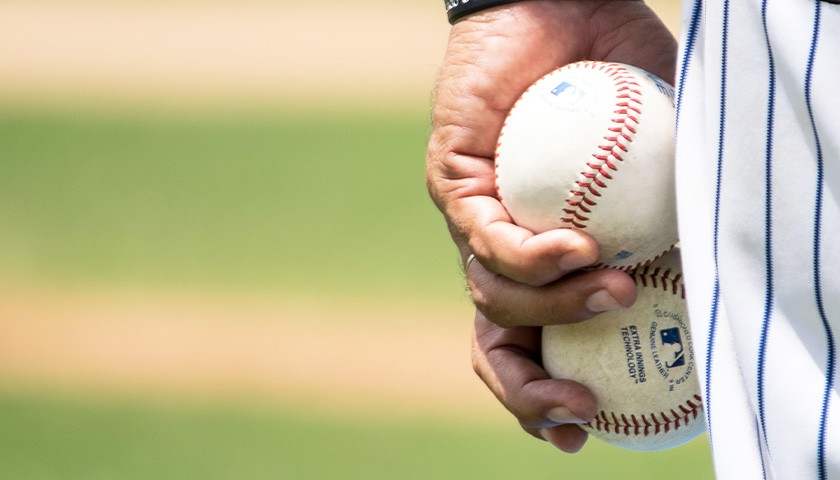Commentary: Religious Conviction in Woke Sports

The National Hockey League faced a kerfuffle last season when some players declined to skate in the “pride”-themed rainbow jerseys the league wanted them to wear. And, more recently, two professional baseball pitchers have found themselves out of Major League jobs for expressing their Christian belief that God frowns on homosexuality.
The Dodgers furor played out over more than a week and saw the team’s ace pitcher, Clayton Kershaw, object to the Sisters performance, which became part of the “Pride Night” the franchise has had for a decade. Kershaw was not alone, as relief pitcher Blake Treinen also spoke against the Sisters of Perpetual Indulgence, saying the group “openly mocks Jesus Christ, the cornerstone of my faith.”
In an initial conservative response to the backlash, the Dodgers canceled the slated performance by the California-based gay performance troupe. But the franchise backtracked again after left-wing activists objected, and it was then the team added an apology and the “community heroes” label.
Trying to appease both sides, the Dodgers said they would once again host a “Christian Faith and Family Day” on June 30, an event the team last held in 2019. While Kershaw applauded the decision, at no point did the Dodgers apologize to Christian protesters, and Brian Burch, president of the national Catholic advocacy group CatholicVote, issued a statement saying, “It’s hard to interpret this announcement as anything other than a public-relations stunt intended to blunt the widespread national backlash that is only growing stronger.”
He added that “creating a ‘faith and family’ event does not balance the decision to honor a perverted, fake ‘nun’ group that exists to mock the Catholic religion. In many ways, it emphasizes the contrast, and makes our case even stronger.”
Although neither Dodgers pitcher speaking out against their team’s decision was penalized, others have not experienced similar forbearance. After he was called up from the minors, Boston Red Sox pitcher Matt Dermody stirred controversy because of a Tweet he’d sent in 2021 while playing in Japan, which read: “#PrideMonth. Homosexuals will not inherit the kingdom of God. They will go to hell. That is not my opinion, but the #Truth. Read 1 Corinthians 6:9. May we all examine our hearts, ask Jesus to forgive us, and repent for our sins. I love you all in Christ Jesus!”
After Toronto Blue Jays pitcher Anthony Bass sent out a since-deleted video on Instagram supporting the large, ongoing boycotts of Bud Light and Target stores because of their support of transgender causes, he apologized the next day for making “a post that was hurtful to the Pride community.” His manager, John Schneider, said that was only a first step in his rehabilitation. “It’s not going to be a 15- or 30-second apology and say, ‘OK, I did my part,’” Schneider told reporters. “There’s going to be continued work with the resources we do have to try to show that he’s understanding that he made a mistake.”
But a week later, Bass backtracked, saying, “I stand by my personal beliefs and everyone’s entitled to their personal beliefs,” The pitcher, who made his major league debut in 2008 and who had appeared in 22 games this year, was removed from the club’s roster on June 9, with Schneider acknowledging that apparently Bass’s re-education was insufficient and that the player’s expressed beliefs played a role in his release.
None of these public declarations of faith by players are new wrinkles in the athletic world. In his 2009 book, “Onward Christian Athletes,” Tom Krattenmaker observed groups like the Fellowship of Christian Athletes or Athletes in Action had spent years nurturing their proselytizing networks among coaches, players and schools.
Krattenmaker said he is not sure how active those groups are today. Neither the Fellowship nor Athletes in Action responded to RealClearInvestigations’ requests for comment.
But Krattenmaker said he is not surprised by clashes between jocks embracing Jesus and organizations chasing rainbows.
“There can be incredible tension between what teams want to do and some parts of their fan base,” Krattenmaker said. “The team may want to respond to a fan base it sees as growing more progressive, but it also doesn’t want to appear to be silencing religion. And that tension can manifest itself in different ways. It’s almost as if the team can’t win.”
Not every sport has found itself a battleground in the intense culture wars stirring the country. The NBA and WNBA of pro basketball have made their political alignment clear, with players and teams embracing the Black Lives Matter movement. (One ripple: the NBA punishing an executive who had the temerity to criticize Communist China.)
What seems clear is sports may never eliminate some religious athletes’ transcendent focus, as the Oklahoma softball team showed. In an interview, Oklahoma third baseman Alyssa Brito said that when Sooners look heavenward while crossing home plate, “we are really fixing our eyes on Christ.”
“If you don’t have a purpose to try to bring so many people to Jesus then it really doesn’t matter if you’re an All-American,” Brito added.

